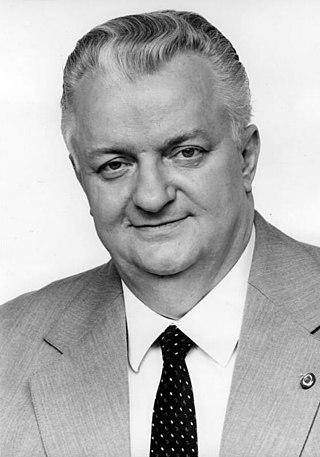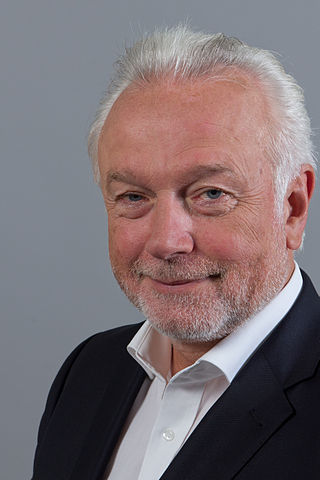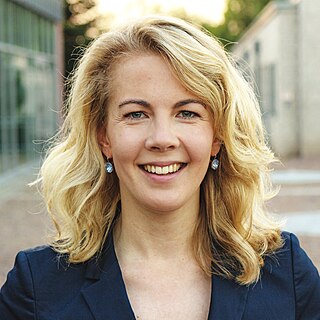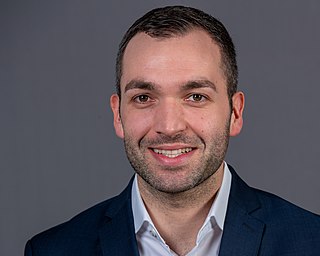
The Liberal Democratic Party of Germany was a political party in East Germany. Like the other allied bloc parties of the Socialist Unity Party of Germany (SED) in the National Front, it had 52 representatives in the People's Chamber.

Manfred Gerlach was a German jurist and politician, and the longtime leader of the East German Liberal Democratic Party. He served as Chairman of the Council of State and was thus head of state of East Germany from 6 December 1989 to 5 April 1990.

Wilhelm Külz was a German liberal politician of the National Liberal Party, the German Democratic Party (DDP) and later the Liberal Democratic Party of Germany (LDPD). He held public office both in the German Empire and in the Weimar Republic. In 1926, he served as interior minister of Germany in the cabinets of chancellors Hans Luther and Wilhelm Marx.

Dietmar Gerhard Bartsch is a German politician who has served as co-chair of The Left parliamentary group in the Bundestag since 2015. Prior, he served as federal treasurer of The Left from 2006 to 2009 and federal managing officer from 2005 to 2010. He was a prominent member of The Left's predecessor party, the PDS, of which he served as treasurer from 1991 to 1997 and federal managing officer from 1997 to 2002.

Joachim Wilhelm Gauck is a German politician who served as President of Germany from 2012 to 2017. A former Lutheran pastor, he came to prominence as an anti-communist civil rights activist in East Germany.

Kurt Wünsche was a German politician who was twice Minister of Justice of the German Democratic Republic.

Karl Otto Hamann was a German politician. Between 1948 and 1952 he was chairman of the Liberal Democratic Party of (East) Germany (LDPD) and also the German Democratic Republic's Minister for Trade and Supply.

Werner Krolikowski was a German political official who became a senior politician. He was a member of the Central Committee of the ruling SED (party) politburo and a deputy chairman of the national Council of Ministers. He also produced a number of political publications.
Peter Moreth was a German politician of the East German satellite party LDPD. He was a member of the Volkskammer from 1986 to March 1990 and member of the State Council of East Germany from 1986 to November 1989. During the Peaceful Revolution he was a Deputy Chairman of the East German Council of Ministers from November 1989 to March 1990, overseeing local government. During the transition towards German reunification he was briefly the first president of the Treuhand, the organisation entrusted with the privatisation of East Germany's nationally-owned enterprises.

Jürgen Schmieder is a politician, originally from East Germany, who came to prominence during the months immediately preceding German reunification.

Rolf Frick was a German university professor and politician.
Herbert Täschner was a politician in the German Democratic Republic who later in his career became a publisher. Between 1950 and 1954 he served as General Secretary of the country's Liberal Democratic Party.
Arthur Lieutenant was a German Liberal politician.

Wolfgang Kubicki is a German politician of the Free Democratic Party of Germany (FDP) and member of the Bundestag from 1990 until 1992 and 2017 onwards. He has been vice chairman of the FDP in Germany since December 2013. Since 24 October 2017 he has served as Vice President of the Bundestag. From 1992 to 1993 and from 1996 to 2017 he served as chairman of the FDP-group in the Schleswig-Holstein state parliament.

Linda Teuteberg is a German lawyer and politician of the Free Democratic Party (FDP). Serving as a member of the Bundestag since 2017, she was elected as General Secretary of the FDP on 26 April 2019 and thereby became part of the party's leadership around chairman Christian Lindner. Lindner asked for and received her resignation effective 19 September 2020.

Torsten Herbst is a German politician of the Free Democratic Party (FDP) who has been serving as a member of the Bundestag from the state of Saxony since 2017. In 2021, he was elected whip of the FDP parliamentary group.

Konstantin Elias Kuhle is a German lawyer and politician of the Free Democratic Party (FDP) who has been serving as a member of the Bundestag from the state of Lower Saxony since 2017. Since 2023, he has been chairing the FDP in Lower Saxony.

Volker Wissing is a German lawyer, former judge and politician of the liberal Free Democratic Party (FDP) who has been serving as the party's General Secretary since 2020, and as Minister for Transport in the federal government under Chancellor Olaf Scholz since 2021. He previously was the Deputy Minister-President of Rhineland-Palatinate in the state government under Minister-President Malu Dreyer from 2016 to 2021 and a member of the German Parliament from 2004 to 2013.

Steffen Bockhahn is a German politician. He is the Senator for Social Affairs, Youth, Health and Schools of the Hanseatic City of Rostock. From 24 October 2009 to 5 November 2012 he was the state chairman of the Left Party in Mecklenburg-Western Pomerania, and from 2009 to 2013 he was a member of the 17th German Bundestag, where he was elected as a direct candidate.

Wolfgang Mischnick was a German liberal politician (FDP). From 1961 to 1963 he was Federal Minister for Expellees, Refugees and War Victims and from 1968 to 1991 Chairman of the FDP parliamentary group and opposition leader from 1968/69.

















